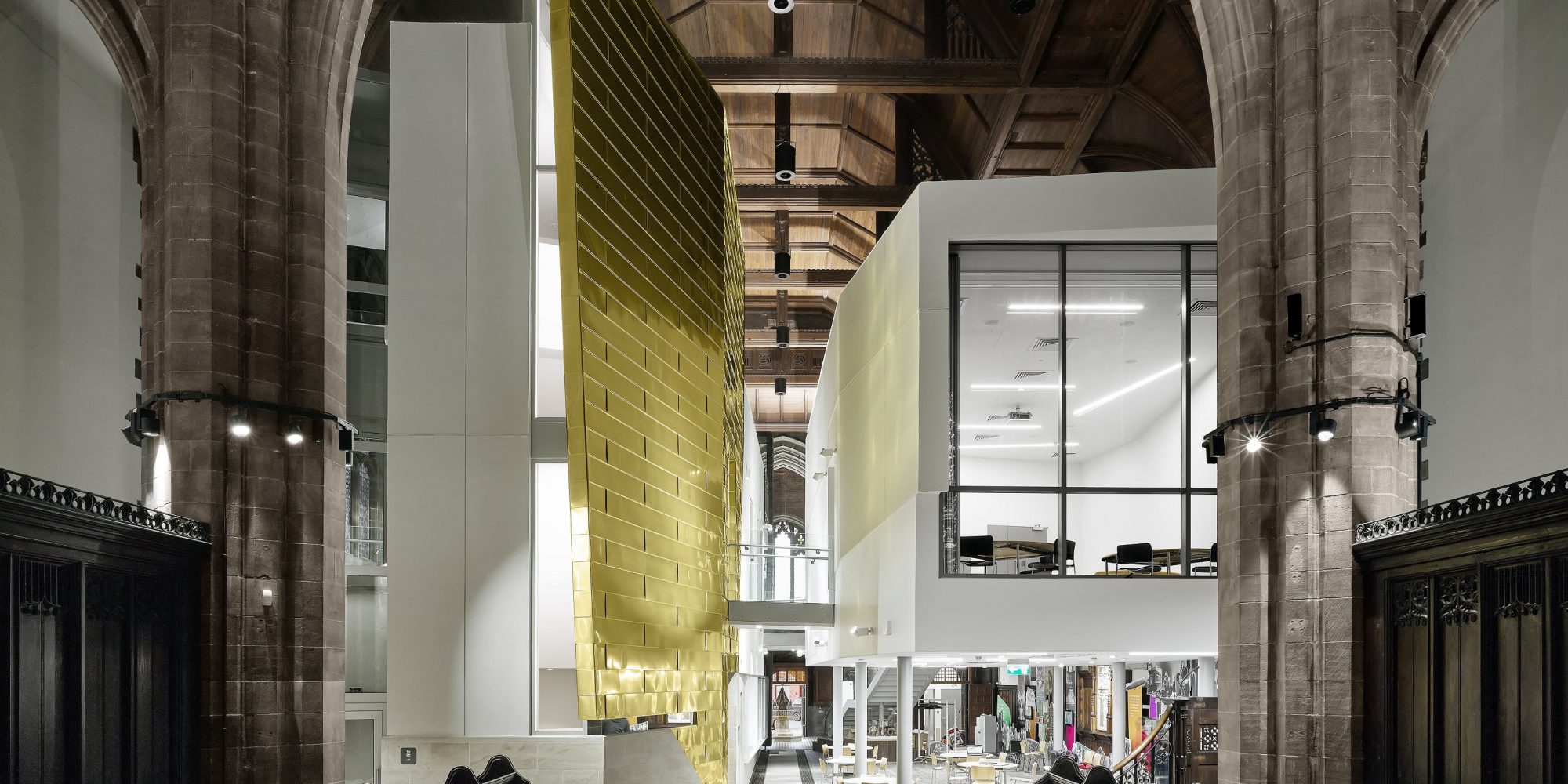Project: All Souls Church
Company: SIPCO
Sector: Commercial
Technology: SIPS
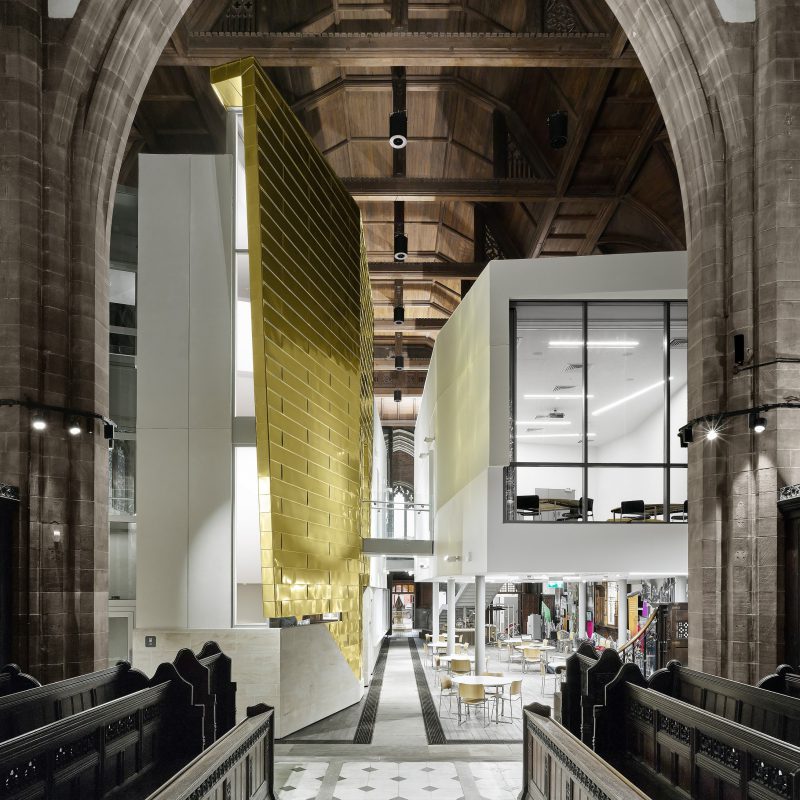
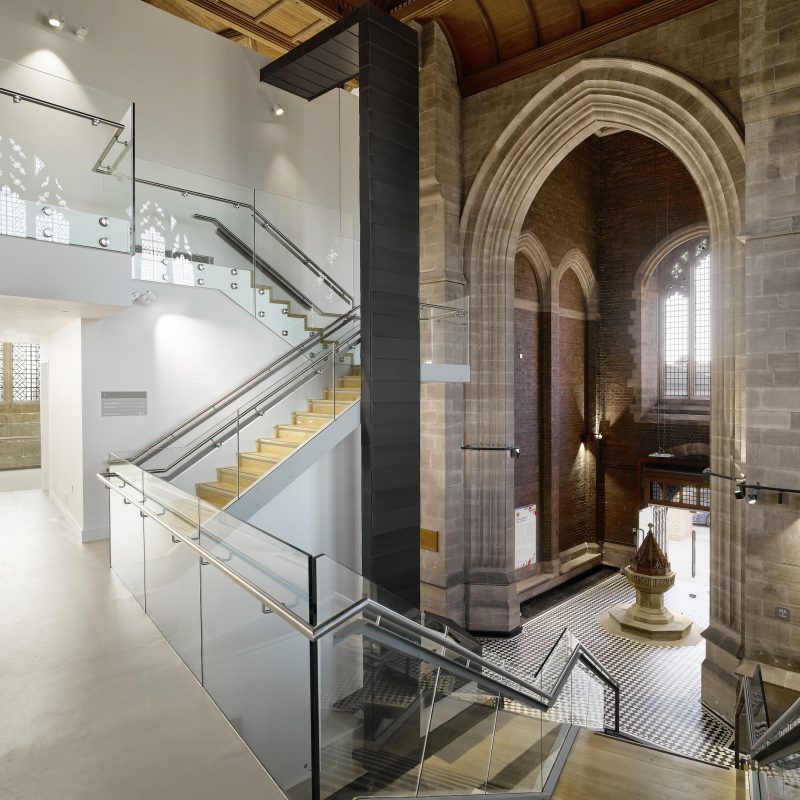
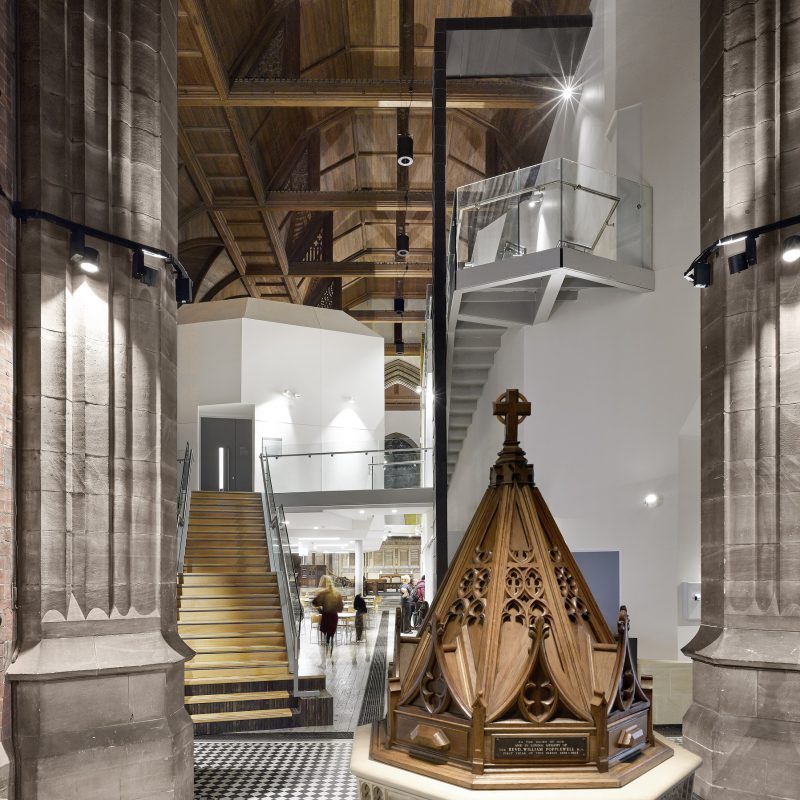
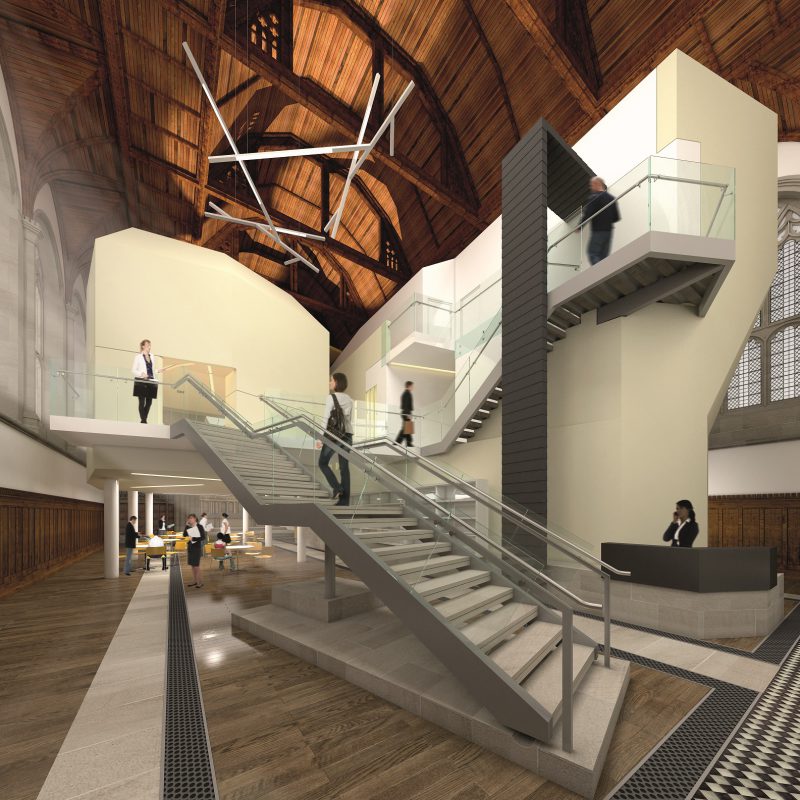
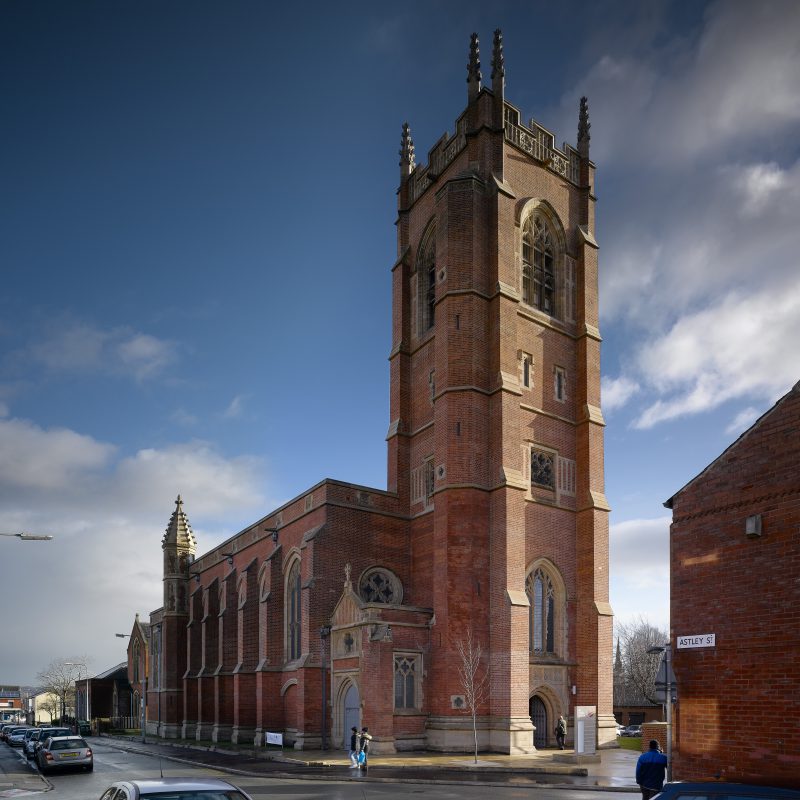
Overview:
Built in 1881 by an Evangelical mill owner – All Souls Church was once the hub of the community in Bolton. After the congregation dwindled, in 1986 the neglected church was closed until two decades later when the Churches Conservation Trust teamed up with the local community to restore it to its pivotal role at the heart of Bolton.
Following a £4.9m adaptive reuse project, which has been ten years in the making – the regeneration project recently picked up four prizes at the RICS Awards for the North West together with the English Heritage Angel Award for ‘Best Rescue of an Historic Site’ and the Heritage Heroes Award.
Constructed in just over a year, all materials and machinery were brought in and out through the church’s two-metre wide west doorway. This restriction resulted in the use of prefabricated Structural Insulated Panel System (SIPS), limiting the need for heavy lifting equipment during construction.
The new look modern interior of the Grade II* listed church, features two futuristic free-standing ‘buildings within a building’. Constructed from Structural Insulated Panels Systems – designed, manufactured and installed by SIPCO – these ‘pods’ house a coffee shop, restaurant, meeting and event spaces together with a centre for heritage learning.
It was important not to impact on the original historic building fabric, therefore the new SIP pods are set back from the exterior walls of the church to enable an appreciation of the finely constructed panelled roof and an entirely unobstructed view of the church. This dramatic new design enables All Souls to be used in new ways and it demonstrates not only how to enable new uses of a Grade II* church whilst maintaining its heritage, but also how enrich the lives of those who live around such buildings. The first SIP pod is a three story 10.5m high structure located on the south side of the nave. It encompasses offices and a kitchen on the ground floor, a production suite, meeting rooms and toilets on the first floor and classrooms on the second floor.
The second SIP pod on the north side of the church, offers a large open space for events together with rooms for retail use and conference facilities on the first floor, which is raised up on six columns to accommodate an ‘open air’ coffee shop and restaurant within the nave of the church.
As part of the repair project, a programme of training outreach and education took place throughout the build, which included tours, lectures and a hands-on training scheme. Using Structural Insulated Panels as the core structural solution will give the building another 100 years of life, transforming it from an unloved 19th century church into a state-of-the-art leisure and retail facility for people of all faiths or none.
The All Souls project went beyond energy efficient, low-carbon and building conservation targets – to include the rejuvenation and re-use of a building to benefit the community. It would have been totally impractical to heat the entire building to create a warm and inviting retail and leisure environment. The SIP Pods create a relaxing space, reducing energy consumption and costs together with minimising maintenance across the lifecycle of the building
SIPCO have been at the forefront of SIP technology for over 10 years and were one of the first to gain BBA Certification. The SIP Pods used in the project are an advanced method of rapid construction, exploiting composite panel techniques – delivering excellent structural and thermal characteristics in one system. SIPS offer extremely high thermal performance throughout the lifecycle of the building, whilst minimising wall thickness. The Polyurethane core of rigid insulation and OSB3 facing panels achieve U-values as low as 0.10 W/m²K, making significant savings on operating costs. Using a SIP system, Building Regulations can easily be achieved and exceeded, right up to BREEAM Excellent.
Carbon sequestration is the process of capture and long-term storage of atmospheric carbon dioxide (CO2). There are two ways to decrease CO2 in the atmosphere – either by reducing emissions, or by removing CO2 and storing it – wood has the unique ability to do both. The SIP newbuild project achieved the carbon sequestration target of 22.42 kgCo2/m2. Not often can specialist contractors claim that the building solution is both unique and innovative but in the case of the All Souls project – it truly is. The SIP pods provided the only design solution – no other form of construction could meet the performance brief and overcome the issues of building within a confined space, with limited access and without the use of heavy lifting equipment. Constructed over a period of a year, all materials and machinery had to be brought in through the church’s two-metre wide doorway.
This project does not follow the usual structural timber design and installation pathway. This is a truly unique solution to an inherent problem of how to make use of a derelict and redundant church. Therefore, close collaboration was not only required between the design, construction teams and specialist heritage and conservation experts but also the local community took an active part in the design and use of the building. Due to the freestanding structure, the engineer was also integral to this project and initially attended weekly onsite meetings.
In tandem with the new build project, a significant historic repair project took place. Alan Gardner of Alan Gardner Associates historic building surveyors oversaw the £1 million repair project, which included the complete re-roofing of the church, the repair and replacement of over 50% of the leaded windows to the nave and extensive masonry repairs.
As well as adding much needed retail and leisure space, the new design takes visitors on a journey around the historic building, facilitating closer views of the windows, war memorials and the unique timber roof – making the former church a tourist destination. The Churches Conservation Trust is predicting that the award-winning design of All Souls with its multi-purpose retail and leisure use, will become a national model for the 200 inner city churches at risk.
Outcome/Results/Success Factor:
All Souls is the Churches Conservation Trust’s biggest ever regeneration project. The project was delivered on time and on budget – exceeding expectations. But this development is about so much more. It is about rejuvenation – bringing life back into a dilapidated and redundant building, giving the people of Bolton a ‘heart to their community’ – a place to use and enjoy but most of all, a building to be proud of. A joint partnership between the Churches Conservation Trust and the local community, has set up ‘All Souls Bolton’, an independent social enterprise, to manage the building.
